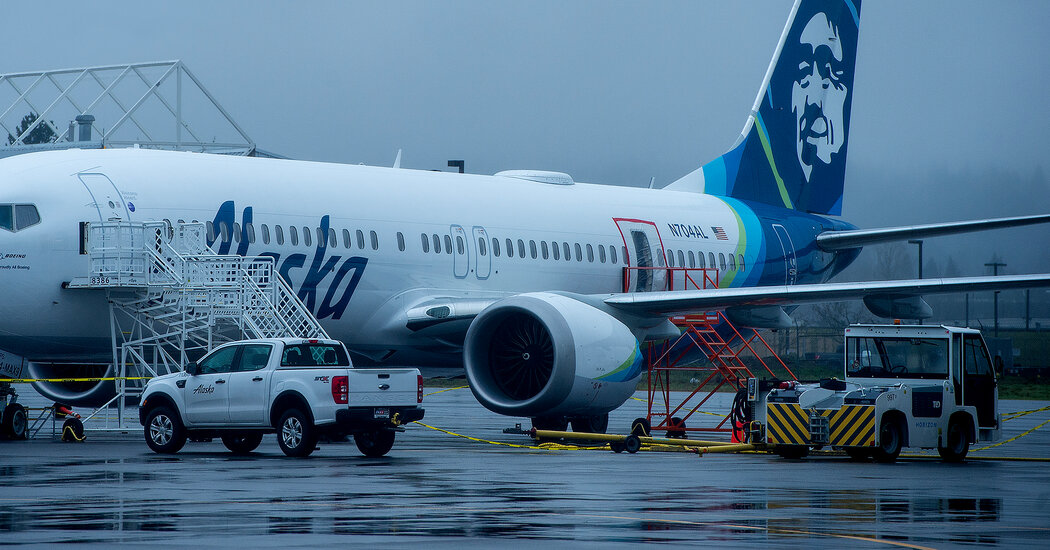Officials investigating why a panel on a Boeing 737 Max 9 blew open during an Alaska Airlines flight last week say they are struggling to piece together exactly what happened because the plane’s cockpit voice recorder overwrote itself before it could be retrieved.
This is not a new problem. The National Transportation Safety Board, which is leading the investigation, has recommended for years that recorders be programmed to capture up to 25 hours of audio before automatically resetting themselves, but the Federal Aviation Administration has been reluctant to mandate longer recordings.
The F.A.A. last month proposed 25-hour recorders on new planes but argued that adding them to the existing fleet of U.S. planes would be too expensive. In addition, a pilots’ union has opposed the move to 25-hour recordings unless Congress puts in place protections that would prohibit their release to the public.
The chairwoman of the safety board, Jennifer Homendy, said the agency’s investigators had conducted 10 investigations since 2018 in which the cockpit voice recorder had been written over, with critical recordings lost forever. The voice recorders are among the key pieces of evidence that investigators use in reconstructing the events that led up to accidents as they work to establish a cause.
Ms. Homendy said a recording from the Alaska Airlines flight would have contained a lot of important information, including the bang that the crew described hearing soon after the plane took off on Friday from Portland, Ore. She said the recording would have enabled investigators to hear communications between the crew during the incident and identify any communications problems, including any audible alerts in the cockpit.
“There’s so much information that we can get off of C.V.R. that’s outside of just the communication amongst the flight crew,” Ms. Homendy said. “That is such a key piece of evidence to improve safety. Without that, we are piecing together things from interviews and losing a lot.”
Members of the flight crew told federal investigators that they had been so focused on going through their emergency checklist, communicating with air traffic control and getting the plane on the ground that they hadn’t heard any alerts. Federal investigators have not implied that the pilots or the flight’s crew made any errors.
“So now that’s what they don’t remember, and we have no evidence that it was happening,” Ms. Homendy said. “So if there was some…
Click Here to Read the Full Original Article at NYT > Travel…
